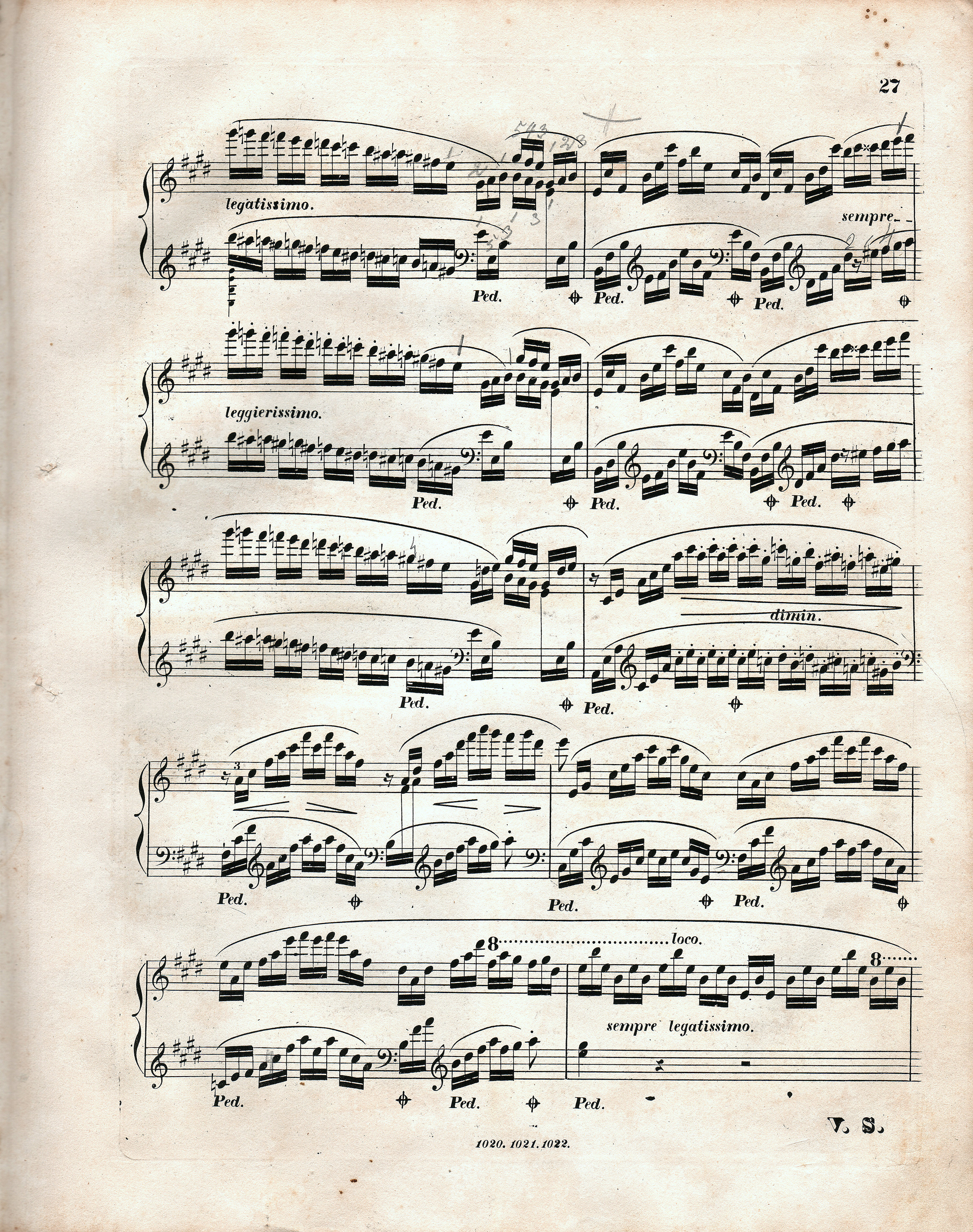



Both in this and in the previous bar, in the printed version, irregularities in the figuration appear (if we can consider the schemes appearing parallelly in the other hand to be regular; moreover, in the F minor passages in bars 111-112) – a2 as the 6th note in the R.H. in bar 112 and f
minor passages in bars 111-112) – a2 as the 6th note in the R.H. in bar 112 and f 2 as the 6th note in the L.H. in bar 113. Both were changed in FES, which may mean, but does not have to, that we are dealing with mistakes.
2 as the 6th note in the L.H. in bar 113. Both were changed in FES, which may mean, but does not have to, that we are dealing with mistakes.
The transition from f 2 to e2 between the 6th and 8th semiquaver in bar 113 may be explained by the f
2 to e2 between the 6th and 8th semiquaver in bar 113 may be explained by the f 1-e1 sequence in the violas' part (the 1st and 2nd crotchet in the bar). However, since both sounds are elements of a minor subdominant chord with added sixth, being the framework of the passage, this "transition", without express accent, is practically imperceptible. Therefore, the use of f
1-e1 sequence in the violas' part (the 1st and 2nd crotchet in the bar). However, since both sounds are elements of a minor subdominant chord with added sixth, being the framework of the passage, this "transition", without express accent, is practically imperceptible. Therefore, the use of f 2 instead of a regular e2 is unjustified, as far as the sound is concerned, whereas the change in FES is probably a correction of a mistake, provoked by, e.g. an imprecise notation of this note in [A].
2 instead of a regular e2 is unjustified, as far as the sound is concerned, whereas the change in FES is probably a correction of a mistake, provoked by, e.g. an imprecise notation of this note in [A].
In bar 112, there is a slightly different situation – a2 does not form part of the chord on which the passage (C minor) is based and it clearly stands out in this context. In spite of this, it seems to be highly unlikely that Chopin intended to insert this note here – in order for such an isolated effect to gain a musical meaning, it should have been emphasised, e.g. with an accent (cf. e.g. the 3rd mov., bars 145 and 147, the Etude in C major, op. 10, no. 1, bar 8 or the Prelude in F major, op. 28, no. 23, bar 21). Due to this reason, in this case we also consider the entry in FES to be a correction of a mistake and in the main text we adopt g
minor) is based and it clearly stands out in this context. In spite of this, it seems to be highly unlikely that Chopin intended to insert this note here – in order for such an isolated effect to gain a musical meaning, it should have been emphasised, e.g. with an accent (cf. e.g. the 3rd mov., bars 145 and 147, the Etude in C major, op. 10, no. 1, bar 8 or the Prelude in F major, op. 28, no. 23, bar 21). Due to this reason, in this case we also consider the entry in FES to be a correction of a mistake and in the main text we adopt g 2.
2.
Compare the passage in the sources »
category imprint: Interpretations within context; Differences between sources
issues: Annotations in teaching copies, Errors in FE, Annotations in FES
notation: Pitch



